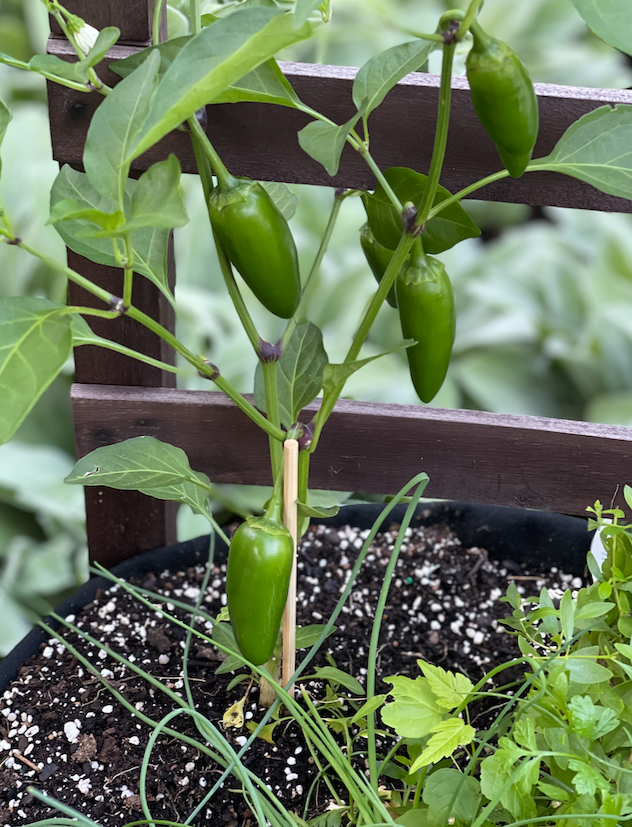Best Fertilizers for Peppers: Achieve Superior Results in Your Garden
Best Fertilizers for Peppers: Achieve Superior Results in Your Garden
Blog Article
Organic Vs. Synthetic Fertilizers: Which Is Best for Supporting Healthy Pepper Plants?
In the world of supporting healthy pepper plants, the option in between synthetic and natural fertilizers stands as a pivotal choice with significant effects. While both choices aim to supply crucial nutrients to sustain plant development, the subtleties of their effect on the dirt, plant health and wellness, and the environment trigger a discussion that mirrors throughout the horticulture community. Comprehending the distinct advantages and potential challenges of each plant food type is vital for pepper cultivators seeking to optimize their yields while preserving an eco-conscious and lasting strategy.
Benefits of Organic Plant Foods
Organic fertilizers supply a lasting and environmentally-friendly strategy to beneficial pepper plants, providing vital nutrients without using artificial chemicals. These natural fertilizers are acquired from natural resources such as garden compost, manure, bone meal, and seaweed, promoting soil health and biodiversity. Unlike artificial fertilizers, organic choices release nutrients gradually, ensuring a balanced and steady supply for pepper plants to flourish.
One significant advantage of natural plant foods is their capability to improve dirt framework and water retention. By enhancing soil wellness, organic plant foods promote useful microbial activity, which helps in nutrient uptake by pepper plants. Furthermore, organic plant foods minimize the danger of chemical run-off, securing water sources from contamination and protecting the atmosphere.
Additionally, natural fertilizers add to lasting soil fertility by advertising the growth of beneficial dirt organisms. These microorganisms aid break down organic issue, releasing nutrients in a kind that is conveniently accessible to pepper plants. best fertilizers for peppers. By cultivating a healthy and balanced dirt environment, organic fertilizers support sustainable pepper farming methods that benefit both plants and the setting
Drawbacks of Artificial Plant Foods
Synthetic fertilizers, in comparison to their organic counterparts, present different drawbacks when utilized to nourish pepper plants, impacting both plant health and wellness and environmental sustainability. One significant drawback of synthetic fertilizers is their propensity to seep nutrients from the soil swiftly. This quick leaching can cause nutrition imbalances in the dirt, creating plants to struggle with poisonings or shortages. In addition, artificial fertilizers can hurt beneficial dirt organisms, such as earthworms and helpful bacteria, interrupting the soil ecosystem's equilibrium.
Additionally, the overuse of artificial plant foods can contribute to water air pollution. Excess plant foods not soaked up by plants can clean away right into water bodies, resulting in eutrophication, where algae flowers deplete oxygen degrees in the water, harming aquatic life. Artificial fertilizers are typically derived from non-renewable resources, such as fossil fuels, adding to carbon emissions and ecological deterioration throughout their production.
Nutrient Absorption Contrast
Effective nutrient absorption plays a crucial role in the total health and development of pepper plants. When comparing organic and synthetic fertilizers in terms of nutrient absorption, organic plant foods have the advantage of providing a much more balanced and slow-release source of nutrients (best fertilizers for peppers). Organic plant foods have a range of macro and trace elements that are not just beneficial for the plants yet likewise advertise healthy and balanced soil microbial task, which assists in nutrient uptake. On the other hand, synthetic plant foods commonly give a fast launch of nutrients, which can result in seeping and drainage, causing lower nutrient absorption prices by the plants.
Furthermore, organic plant foods boost dirt framework and water retention ability, allowing pepper plants to access nutrients more effectively. This improved soil high quality helps with origin advancement, making it possible for much better nutrient absorption. Artificial plant foods, although originally boosting plant growth because of why not look here their high nutrient focus, might impede long-term nutrient absorption by degrading soil wellness gradually.
Ecological Effect Considerations

On the other hand, artificial plant foods, although usually more concentrated and instantly readily available to plants, can have harmful results on the environment otherwise used correctly (best fertilizers for peppers). Their production needs redirected here high energy inputs, resulting in greenhouse gas emissions and adding to climate modification. The drainage of excess artificial fertilizers can pollute water resources, leading to eutrophication and harming marine ecosystems.
Finest Plant Food Practices for Peppers
When fertilizing pepper plants, maximizing nutrient uptake and reducing environmental impact are key considerations. To accomplish this, it is important to comply with finest plant food methods tailored to the specific demands of pepper plants. One vital technique is to execute a soil test prior to using any kind of fertilizers. This examination can figure out the pH level of the soil and identify any kind of nutrient deficiencies, guiding you in selecting one of the most suitable plant food formula.
Another essential practice is to feed pepper plants at the correct time. Generally, peppers gain from receiving fertilizer at planting and afterwards again when they start to blossom. Over-fertilizing can bring about vitamins and mineral imbalances and harm the plants, so it is vital to follow advised application rates.
Additionally, choosing a balanced plant food with an NPK ratio that suits pepper plants' demands is fundamental. Inevitably, incorporating natural and artificial fertilizers sensibly can help support healthy and balanced pepper plants while lessening environmental effect.
Final Thought

Organic fertilizers offer a sustainable and environmentally-friendly strategy to nourishing pepper plants, offering vital nutrients without the use of artificial chemicals. Unlike artificial fertilizers, natural alternatives release nutrients gradually, ensuring a well balanced and steady supply for pepper plants to prosper.
Synthetic plant foods, see here now in comparison to their organic equivalents, posture various drawbacks when utilized to nourish pepper plants, influencing both plant wellness and ecological sustainability. When contrasting synthetic and organic plant foods in terms of nutrient absorption, organic fertilizers have the benefit of providing an extra well balanced and slow-release resource of nutrients.Furthermore, organic fertilizers enhance dirt framework and water retention capability, allowing pepper plants to accessibility nutrients extra efficiently.
Report this page